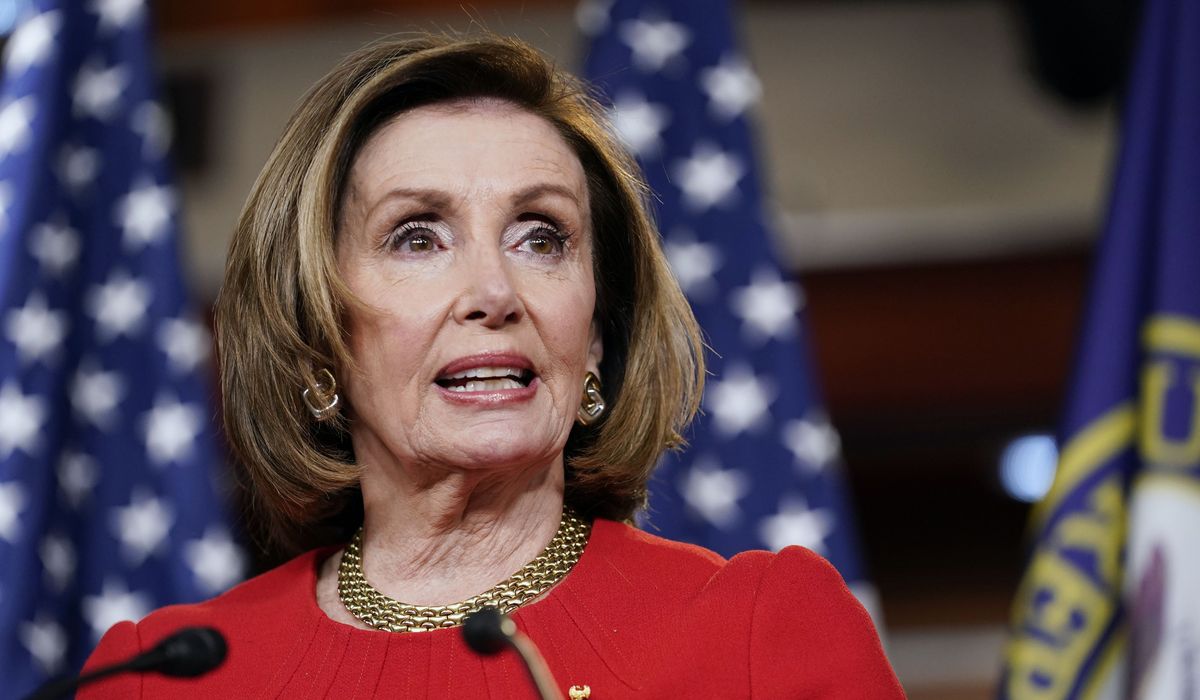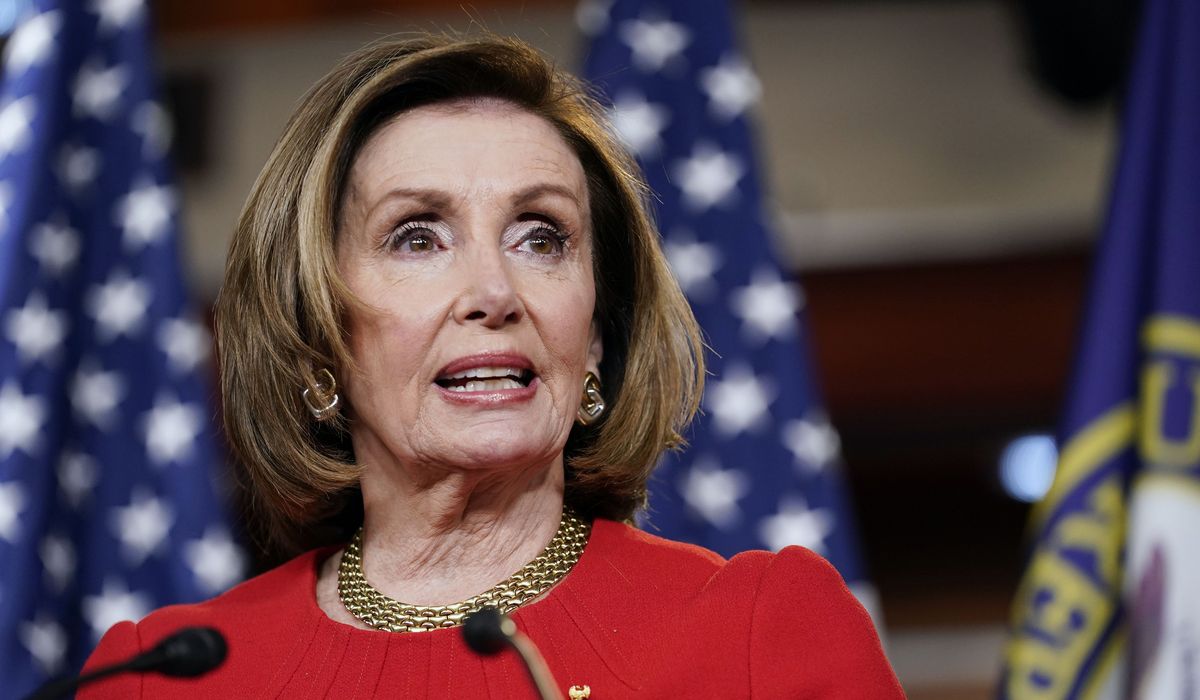
Top congressional Democrats on Monday pressed their campaign to make permanent the COVID-19 boost to the child tax credit, advancing another front in the party’s quest to expand the welfare state as they essentially dared Republicans to try to roll back the new benefits.
House Speaker Nancy Pelosi and other top Democrats began the offensive immediately after the Treasury Department announced Monday that the first round of payments from a one-year extension in the $1.9 trillion relief package will go out starting in July.
“We must make this lifeline permanent,” said Mrs. Pelosi, California Democrat.
Mrs. Pelosi and other top Democrats, including House Ways and Means Committee Chairman Richard Neal and House Appropriations Committee Chairwoman Rosa DeLauro, had praised the Biden administration’s announcement earlier Monday that the payments would start going out soon.
“Now that nearly 90% of our nation’s children will benefit from this critical lifeline, we must make this change permanent,” said Mr. Neal, Massachusetts Democrat. “Millions of families are counting on us, and the Ways and Means Committee stands ready to make it happen.”
Mr. Neal and Ms. DeLauro of Connecticut are among the key congressional Democrats who have been lobbying for a permanent extension to the expanded child credit. The temporary COVID-19 relief package increased the typical $2,000-per-child credit to $3,000 — and $3,600 for children under age 6.
The president touted the forthcoming payments in remarks at the White House on Monday.
“This tax cut sends a clear and powerful message to American working families with children — help is here,” Mr. Biden said.
Mr. Biden included an extension of the expanded credit through 2025 in his $1.8 trillion “American Families Plan.” But congressional Democrats say that’s not good enough.
“These monthly payments cannot simply stop after one year or five years,” Ms. DeLauro said in a joint statement issued with Reps. Suzan DelBene of Washington and Ritchie Torres of New York.
The credit starts to phase out for individuals who make more than $75,000 per year, heads of household earning more than $112,500 per year, and married couples earning more than $150,000 per year.
Democratic Reps. Katie Porter of California, Ayanna Pressley of Massachusetts, and Don Beyer of Virginia announced separate legislation last week to increase the phaseout threshold to $150,000 for heads of household, which is the filing status single parents frequently use.
Permanently extending the bolstered credit would cost taxpayers nearly $1.6 trillion over 10 years, according to an estimate from the Tax Foundation think tank.
Despite the cost, Democrats are banking on the fact that it will be politically unpopular for lawmakers to eliminate the benefit and that it will follow in the footsteps of other, now-permanent fixtures of the tax code.
“One thing that you should know about the tax code: Getting something out of the code is oftentimes harder than getting something in the code,” Mr. Neal said in March ahead of final House passage of the relief bill.
IRS Commissioner Charles Rettig had raised doubts earlier this year about whether the agency would be able to set up a system so quickly to dole out the payments for the bolstered credit on a recurring basis.







